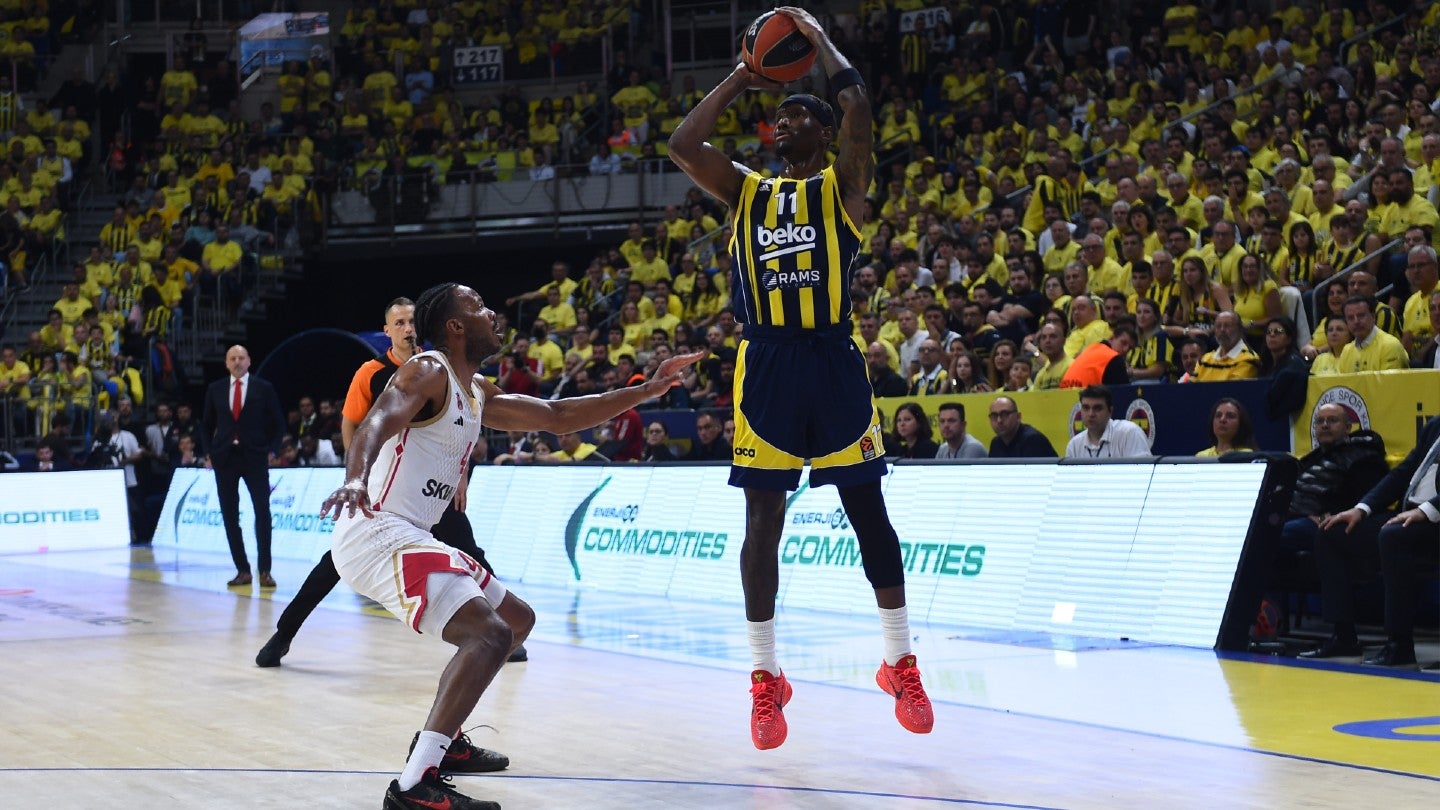
The EuroLeague, European basketball’s elite international club competition, has unveiled new financial fair play (FFP) regulations aimed at promoting parity and meritocracy in the league while insulating it from economic risk.
It marks the EuroLeague’s first introduction of an enforced salary cap, a move it hopes will promote parity and fairness, as well as ensure the league’s future financial sustainability by disincentivizing excessive spending and unsustainable squad numbers and business habits.

Discover B2B Marketing That Performs
Combine business intelligence and editorial excellence to reach engaged professionals across 36 leading media platforms.
Known as the Competitive Balance Stands (CBS), the new regulations tether the salary levels to the commercial and fiscal performance of each respective side.
This means that both minimum and maximum levels salary levels will be enforced depending on factors such as the clubs’ total revenue generation, derived from game day income, commercial revenue, and other sources, averaged over two years.
Three salary levels will be introduced, the lowest of which (Low Remuneration Level) simply requires 32% of the average two-year revenue to be spent on player wages, the median level (Base) ups that to 40%, with exceptions allowed for players of certain roles such as those under 23 years old, or the team’s “Anchor” stars (its two best paid players).
The highest level, capped at 60%, includes exceptions for under-23s, injured players and more just as the Base level does, however it does not have exceptions for the Anchor players, who’s salaries must be included in calculations.

US Tariffs are shifting - will you react or anticipate?
Don’t let policy changes catch you off guard. Stay proactive with real-time data and expert analysis.
By GlobalDataIf a team is found to be in breach of the rules, effectively being under 32% or over 60%, then it will have to pay a “luxury tax” equivalent to a certain amount of Euros per Euro over or under the limit banded by percentages.
Money generated by the league through the luxury tax will then be distributed back to those teams that have stayed within guidelines.
The EuroLeague hopes that this will in turn increase transparency between the EuroLeague’s 18 member teams, as well as stamp out “inappropriate practices” by enforcing established guidelines.
Of the 18 teams, it is the 12 with long term membership licenses that the rules will affect primarily, with the league’s other six participants competing on annual licenses.
The 2024-25 EuroLeague season will be a grace period to allow teams to adjust to the regulations, with the rules to be gradually introduced yearly ahead of their full and total enforcement from the 2027-29 campaign onwards.
The legislation was approved by the Assembly of Syndicate Shareholders of EuroLeague Commercial Assets, in collaboration with the EuroLeague Players Association labor union.
Existing EuroLeague financial legislation such as the current financial fair play rules regarding stability, overdue payables, and financial controls will remain in place.





